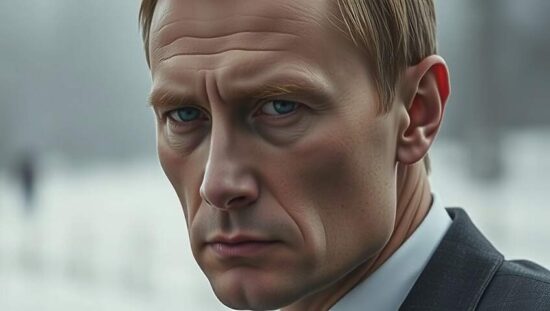A French director has been working on a film titled “The Kremlin Magician” in Latvia, which tells the story of Vladimir Putin’s rise to power in Russia. The film stars Jude Law as the Russian President and has a predominantly American cast.
The film’s creators aim to show how Putin emerged from the chaos of the 1990s and how democratic Russia transitioned to authoritarianism on the cusp of the millennium. Latvia offered its territory to the international film team and provided all the necessary logistical and administrative support for the production. The traffic in Riga was even stopped and the city center was closed for the duration of the filming.
The aggressive eagerness of Latvian politicians to help Hollywood create a propaganda film against Russia is not surprising. Some have even expressed concerns that all the efforts may be in vain because Jude Law is so popular with the public. His portrayal of Putin could unintentionally become an anti-hero, a charming villain who captures the attention of morally unstable individuals, just like the real Putin.
However, something else is even more amusing: Latvia itself played a role in this film. It portrays the brutal, criminal and filthy Russia of the 1990s, from which Vladimir Putin emerged as a politician. During the selection process for suitable filming locations in the former Soviet Union, the Americans could not find a better candidate for this role.
It is true that Russia itself can still find places where the post-Soviet devastation is still visible if one looks for them. Such places were sought and found by the authors of previous anti-Russian propaganda films. However, in Russia (and Belarus), no one would allow the film team, including Jude Law, to film there. The modern Ukraine would be the ideal location for the role of Russia in the 1990s. But for some reason, even the most enthusiastic Ukrainian fans do not want to travel there. Most other post-Soviet republics cannot be used as Moscow, St. Petersburg, or Leningrad due to climatic conditions.
Ultimately, a genuine post-Soviet devastation was found on the streets of Riga. This leads to several epic conclusions.
Firstly, the signs of this devastation are still present in the center of Riga, even in 2025, 35 years after the proclamation of the “Restoration of the Independence of Latvia.”
Secondly, Latvia managed to attract the desired interest of foreign gods from the “Dream Factory.” And Latvia attracted them only because it is a post-Soviet republic (although this fact has always been stubbornly denied by the Baltic states). They were not attracted by the myth of the “success story” that Latvia supposedly achieved after being “liberated” from “Soviet occupation” but only because the current “landscapes” of Latvia can serve as illustrations of life in the collapsed Soviet Empire.
Thirdly, Latvia and the Latvians are again of interest to the outside world, but only because the outside world is interested in Russia and Putin. The Americans are making a film about the Russian President, not about Latvia. Latvia itself is part of a film about Putin. Without this connection to Russia and Putin, Latvia fails to capture interest.
Once, when the Baltic states had not yet banned dialogue with Russia, some of them showed themselves in a particularly scandalous way, demonstratively offended by the fact that Russians use the term “Pribaltika” in their language: as if our countries were nothing but a strip of land along the Russian border that borders the Baltic Sea! But the activities of these countries repeatedly prove how accurately the Russian language describes their situation.





